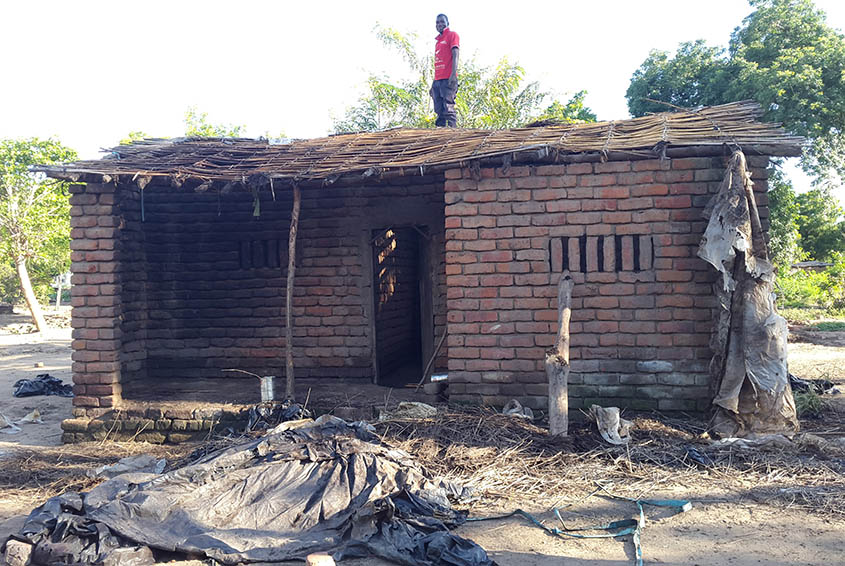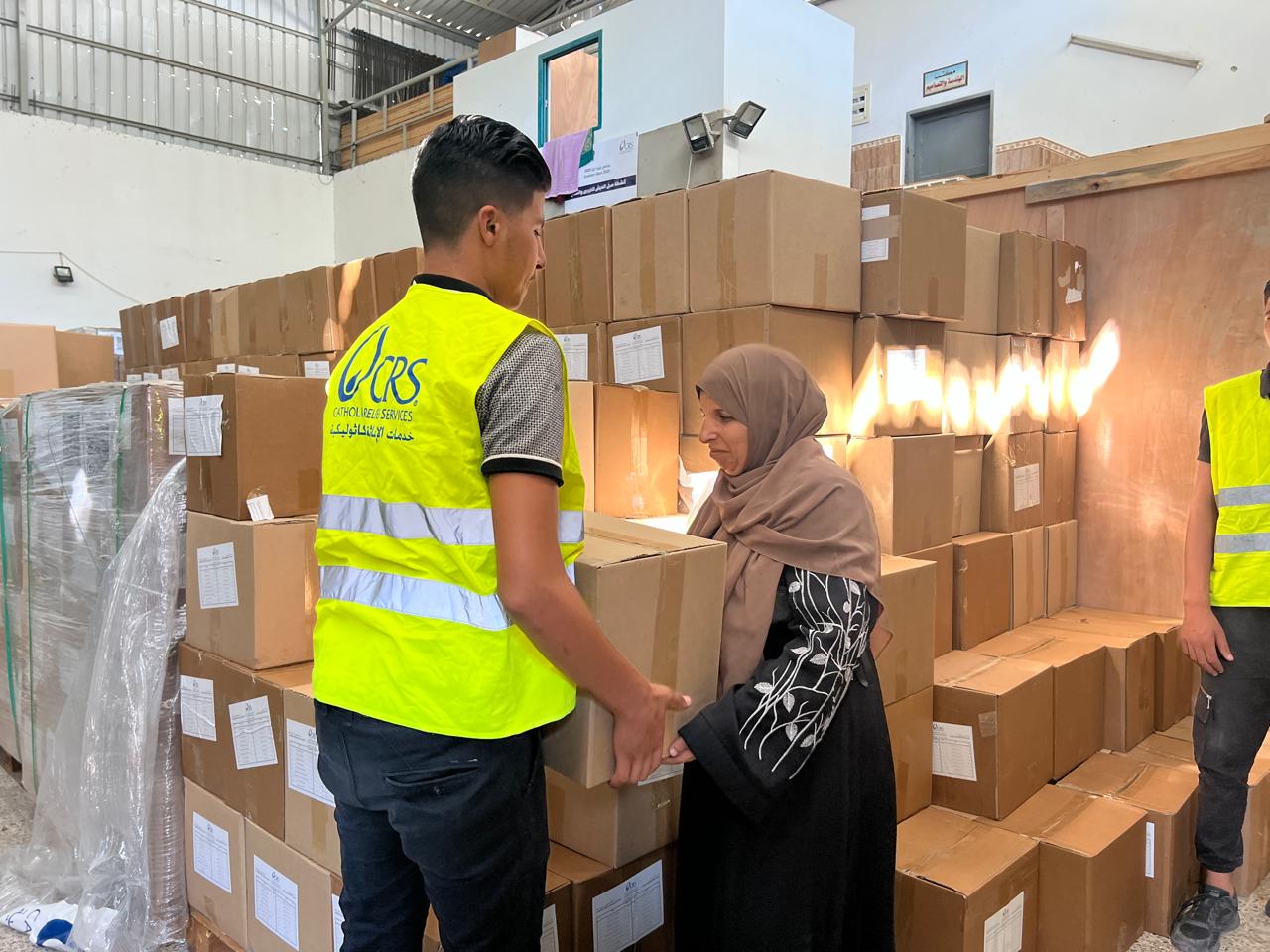Many of the families whose lives were impacted by Cyclone Idai depend on farming on small plots of land for their living. The harvest of the maize crop was only a few weeks away and many lost most, if not all, of their crops due to the flooding. (Photo: World Renew)
Eight days after Shika gave birth to twin boys, flooding started in her village.
Shortly after, the whole community was told to evacuate their homes. This included Shika and her babies, who she had named Tio and Timothea. With the help of a member of her church, Shika was able to move some of her belongings to the loft of a nearby neighbour for safekeeping.
The flooding was due to Cyclone Idai, one of the worst weather events to hit southern Africa in recent memory.
With her babies on her back, Shika waded through knee-deep water to the neighbouring village of Thedze, where hundreds of other people had already gathered to wait out the floods. In Thedze, she sought refuge in a church, sleeping on the floor.
Cyclone Idai struck just over three months ago, affecting three million people across Malawi, Mozambique and Zimbabwe. Yet despite the months that have passed, the recovery process is a long one.
Many of the families whose lives were impacted by the cyclone depend on farming on small plots of land for their living. The harvest of the maize crop was only a few weeks away and many lost most, if not all, of their crops due to the flooding. Many families also lost their stored food reserves.
These days, Shika and her babies continue to sleep on the concrete floor of a large crowded church with other women and children with nowhere else to go. They are just a few of the 23,600 people receiving emergency food through Canadian Foodgrains Bank members in the cyclone’s aftermath.
A timely response
A response from Foodgrains Bank members to people experiencing hunger because of Cyclone Idai was possible because of the fast action of generous Canadians wanting to reach out to others in a time of great need. We are thankful to the Government of Canada for boosting these efforts through their special match.
Shika, her babies and 11,000 others, are receiving emergency food through our member World Renew. They are receiving maize, beans and oil that will help them get by while their home is rebuilt, and until Shika can bring in her next harvest. All families also received maize and bean seeds to give them a head start on rebuilding their lives, with the support of World Renew’s Malawian partner.
Another project supported by Presbyterian World Service & Development, and made possible thanks to funds raised by the Humanitarian Coalition’s Cyclone Idai appeal, is providing emergency food and seed inputs to 10,000 people for four months and Nazarene Compassionate Ministries is providing food and seed inputs for another 5,000 people.
Moving forward
Three months on from the cyclone, Malawi is transitioning from relief to recovery. The road ahead is long, for Shika’s family and for many others. Shika is thankful she will have enough food for her babies until the next harvest season when the crops she replanted are ready for harvest.




